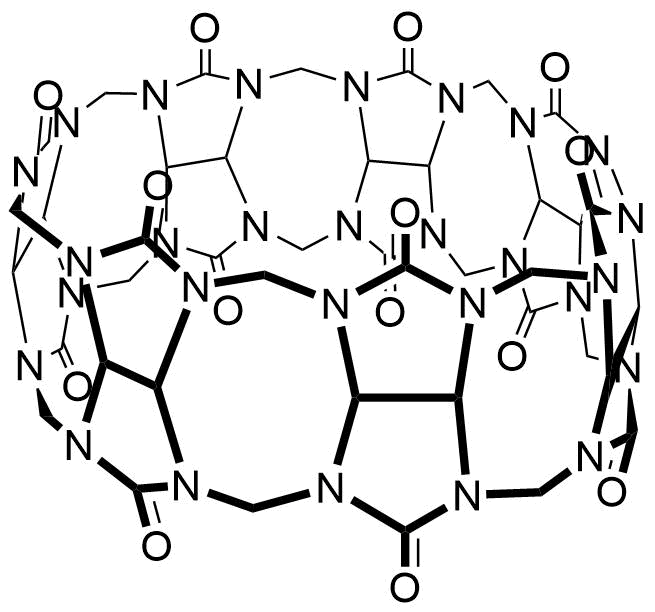Binding Properties
| 𝜈 | Molecule 2 : 1 Host | ||
| Ka = | 1.43⋅1010 | M-2 | |
| Kd = | |||
| logKa = | |||
| T | 25.0 °C | ||
| Energy | kJ mol-1 | kcal mol-1 | |||
|---|---|---|---|---|---|
| ΔG | = | -57.97 | ± 0.0 | -13.86 | ± 0.0 |
These are the specifications of the determination of the experimental results.
| Detection Method: | Direct | |||
| Assay Type: | Direct Binding Assay | |||
| Technique: | Fluorescence | |||
| 𝛌ex | = | 440.0 nm | ||
| 𝛌em | = | 480.0 nm | ||
| Ibound⁄Ifree | = | 6.0 | ||
Detailed information about the solvation.
| Solvent System | Single Solvent |
| Solvent | water |
Please find here information about the dataset this interaction is part of.
| Citation: |
B. Chakraborty, S. Basu, SupraBank 2026, Deciphering the host–guest chemistry of Acridine Yellow and Cucurbit[7]uril: An integrated spectroscopic and calorimetric study (dataset). https://doi.org/10.34804/supra.20210928156 |
| Link: | https://doi.org/10.34804/supra.20210928156 |
| Export: | BibTex | RIS | EndNote |
Please find here information about the scholarly article describing the results derived from that data.
| Citation: |
B. Chakraborty, S. Basu, Chemical Physics Letters 2011, 507, 74–79. |
| Link: | https://doi.org/10.1016/j.cplett.2011.03.014 |
| Export: | BibTex | RIS | EndNote |
Binding Isotherm Simulations
The plot depicts the binding isotherm simulation of a 1:1 interaction of Acridine Yellow G (1.3986013986013986e-09 M) and CB7 (0 — 2.7972027972027972e-09 M).
Please sign in: customize the simulation by signing in to the SupraBank.




